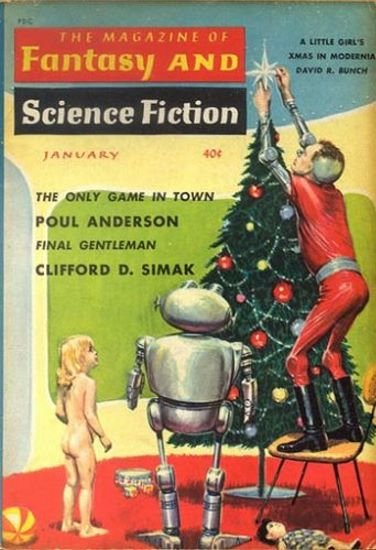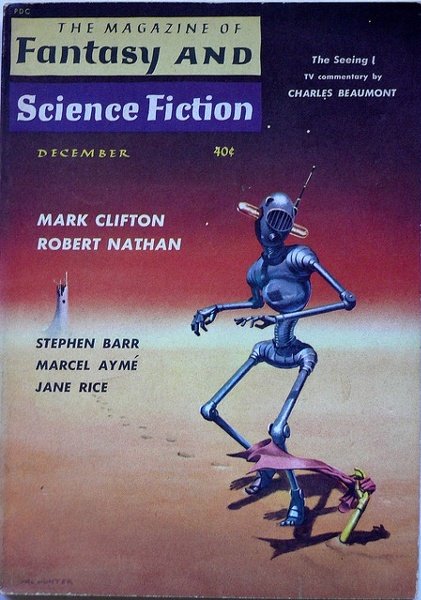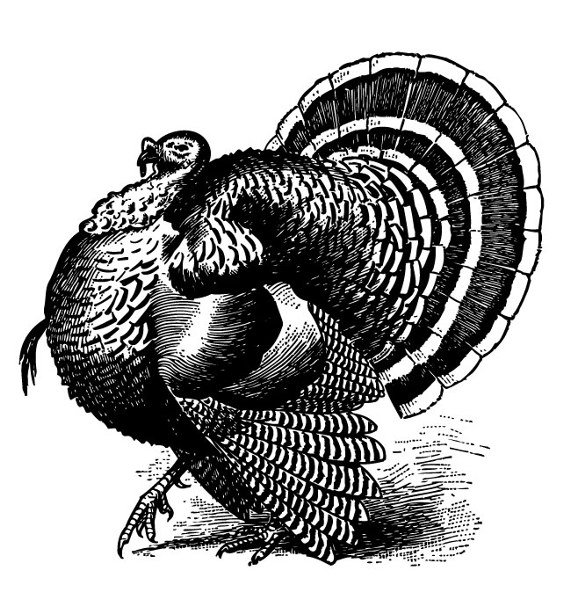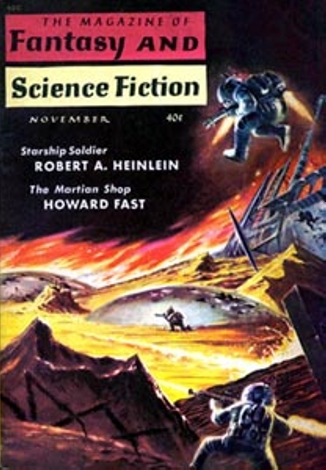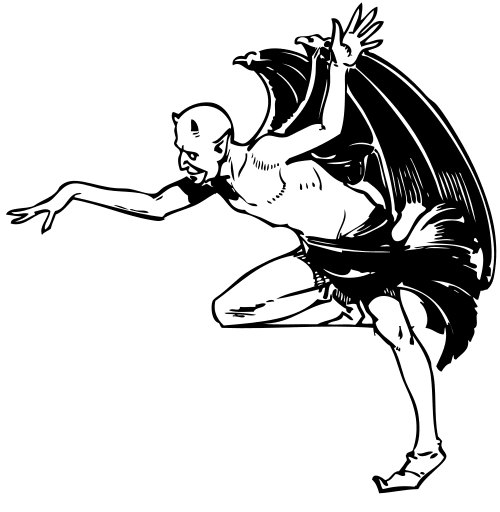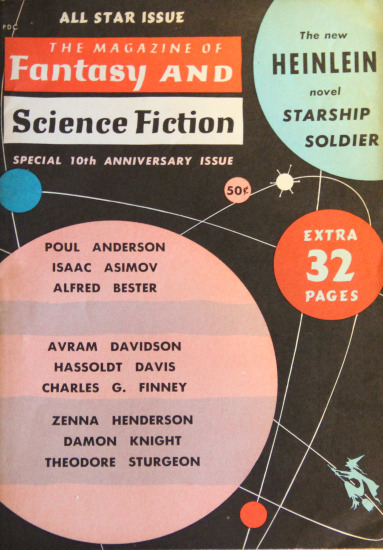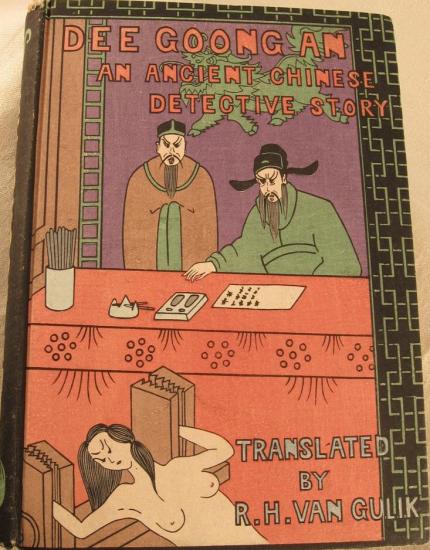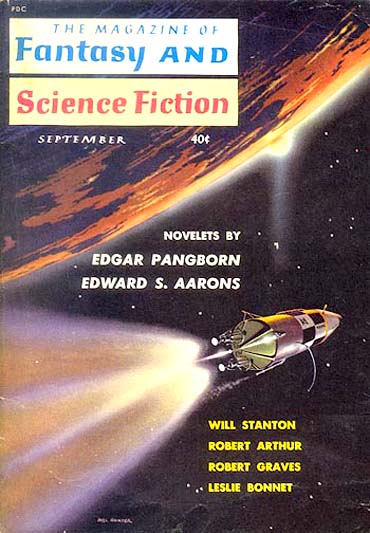How do you attract the intelligent fan? Why, appeal to her/his sense of mental superiority, of course. Science fiction magazines do it all the time; The Magazine of Fantasy and Science Fiction is particularly fond of showcasing the brainy cultured notables who have subscriptions. There is some justification to this conceit. After all, science fiction (at least the literary kind) tends to be the province of the creative, the egg-headed. The ideas are, by definition, innovative and sometimes revolutionary, and it follows that an oversized brain is required to understand them.
Howard Fast's lead novella in this month's issue of F&SF, The First Men, seems a conscious nod to this concept. Its premise: just as normal humans raised in the wild by animals have a stunted intellectual growth that cannot be remedied once they reach maturity, exceptional humans (geniuses) are stunted by the straight-jacketing society into which they are born. This society is designed to accommodate the average person, thus the wunderkind does not develop to her/his full potential. In Fast's story, some far-sighted folk decide to create a new isolated society designed to enable geniuses, identified at infancy, to fully flower into the next level of humanity.

It's a compelling notion, isn't it. How many of us clever folk have felt stifled and underapplied throughout life? In school, in work, in social situations, we find insufficient challenge and our faculties atrophy. Of course, many of the bright figure out how to use their talents to get ahead, but is it enough simply to do better than others at games for dullards?
What keeps this story from greatness are the fundamental flaws with the premise and the implementation. For instance, the old fable about only using 10% of our brains is trotted out, much to my dismay. But setting that aside, how can a group of admittedly normal folk be sure to find the optimal way to hatch a new race of unfettered geniuses? And what guarantee do we have that they will be, as happens in the story, be utterly benevolent? I think Golding's Lord of the Flies is a better signpost than Ballantyne's The Coral Island, frankly.
Also, it seems that the Israeli kibbutz is the inspiration for the ideal society depicted in the story. It may be too early to tell, but it seems that the kibbutz, a sort of commune, may not be the paradise it seems to be. The second generation of kibbutzniks is coming of age, and many are dissatisfied with the socialism, the provincialism, and the overfamiliarity that comes with living in an isolated village. Moreover, these young adults have been raised in common with all the other kibbutz kids, without individual parents (as is the norm on the kibbutz, and in The First Men). This causes them to see their fellow kibbutzniks as siblings rather than potential mates, and they feel they must leave home to marry. For all of these reasons, some are predicting that the kibbutzim (plural of kibbutz) will not survive as an institution past this generation, much to the dismay of the idealists who founded them. By extension, I feel Fast's commune is similarly doomed.
Finally, the tale does not end happily, which left me with a bad aftertaste, perhaps more so as we smart readers are supposed to identify with this budding race of liberated humanity. For all these reasons, I have to give the story no more than three stars.
However, as Oklahoma Senator Mike Monroney is fond of saying, "your mileage may vary."
The rest of the issue in a couple of days!
—
Galactic Journey is now a proud member of a constellation of interesting columns. While you're waiting for me to publish my next article, why not give one of them a read!
(Confused? Click here for an explanation as to what's really going on)
This entry was originally posted at Dreamwidth, where it has comments. Please comment here or there.


